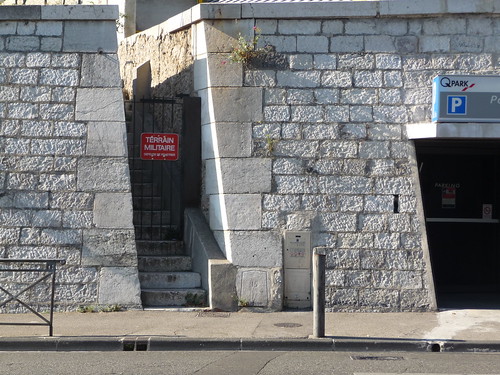Tempering Digital Imperialism
Posted: July 13th, 2010 | No Comments »Human Geographers help me theorize my investigation and frame my rhetoric (e.g. Stephen Graham, Phil Hubbard, Martin Dodge, Mike Crank, and Rob Kitchin). Among several themes they have formed a large body of work on the confrontation of technophiliac dreams with situated practices. In his recent book Cities Under Siege: The New Military Urbanism, Stephen Graham gives a convincing exposé on the evolution of the urban sites, spaces and infrastructures which have become battleground that continually track, scan, control and target people. As a natural counterbalance, forces act in tempering the technical community’s enthusiasm for sensing, reporting and actuation apparatus. In a synthesis of a talk Stephen Graham gave over the weekend, Adam Greenfield (Cities and citizenship; fake security and the real thing) the challenge of network urbanism and what it can do for cities and citizenship:
The more technologists gain a sense of the limits of their tools, and what these tools might actually be good for, the more effectively they can bring their special expertise to bear on the challenges that confront us.
This concern echoes very well with Jacques Lévy‘s wrap-up of last week’s Lift France. The human geographer warned on the risks of a certain digital imperialism that sabotages socials logics and desires arguing subtlety for the “assimilation” rather than the “accommodation” of the immaterial with the material. Bruno Marzloff reports it as:
À propos du couple matériel/immatériel, le géographe appelle à penser plutôt la figure de “l’hybridation” que celle de “l’expansion”, mettant en garde contre un impérialisme du numérique. Il faut penser “assimilation” (la voie naturelle) plutôt qu’ “accommodation” (la voie forcée). “Faut-il un passeport pour franchir la frontière du numérique ?”, demande enfin notre géographe qui tacle au passage les bons esprits qui voudraient qu’ “il suffit d’être bon dans le numérique, pour être bon dans tout”. Il insiste enfin pour qu’on ne sabote pas au nom du numérique “ce potentiel extraordinaire des logiques sociales et de ses désirs”.
Why do I blog this: Digital initiatives for cities often lack of subtleness and creativity in defining the ability of technologies to improve the human and social experience (see for instance Freeband’s technophiliac scenarios). An implicit message in my talks at Lift this year and in 2007 is to temper this digital imperialism and better look for the opportunities that lay in gaining a sense of the limits of the tools I develop; opportunities for instance in designing for assimilation into a practice, or in designing for appropriation.

Explicit sign of (old) military urbanism. A military area in the heart of Marseille, as captured last week.

